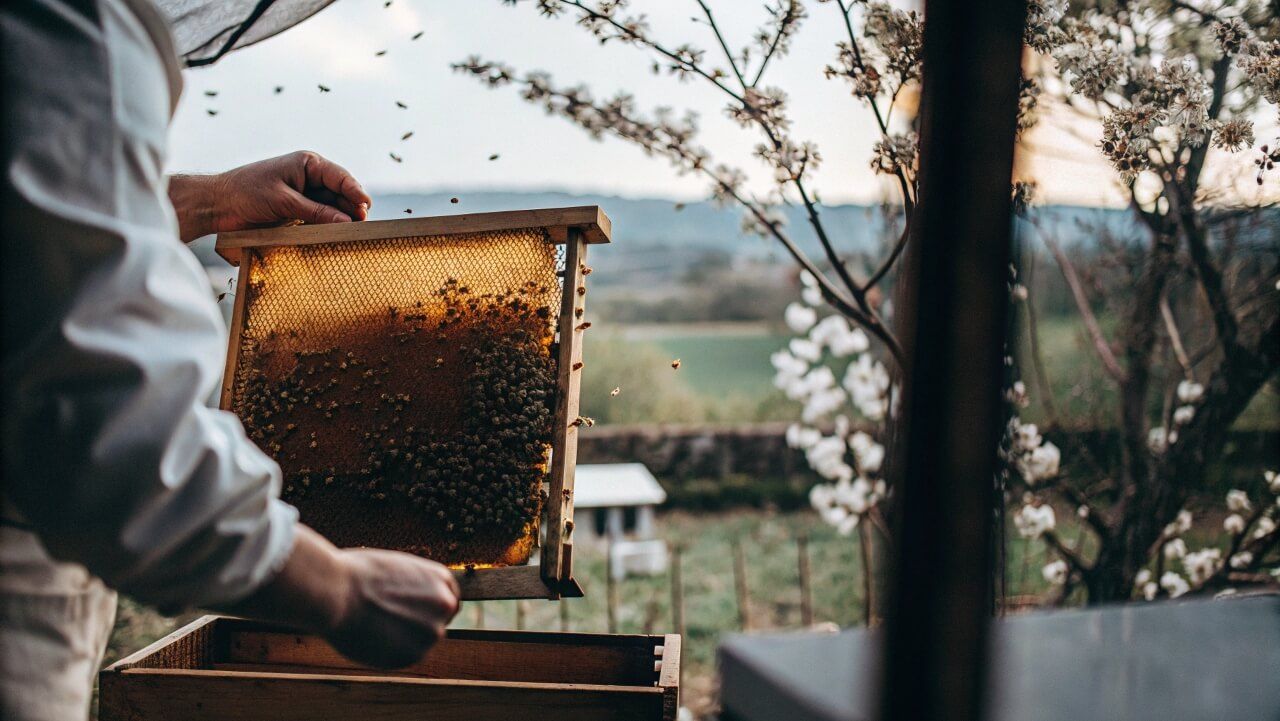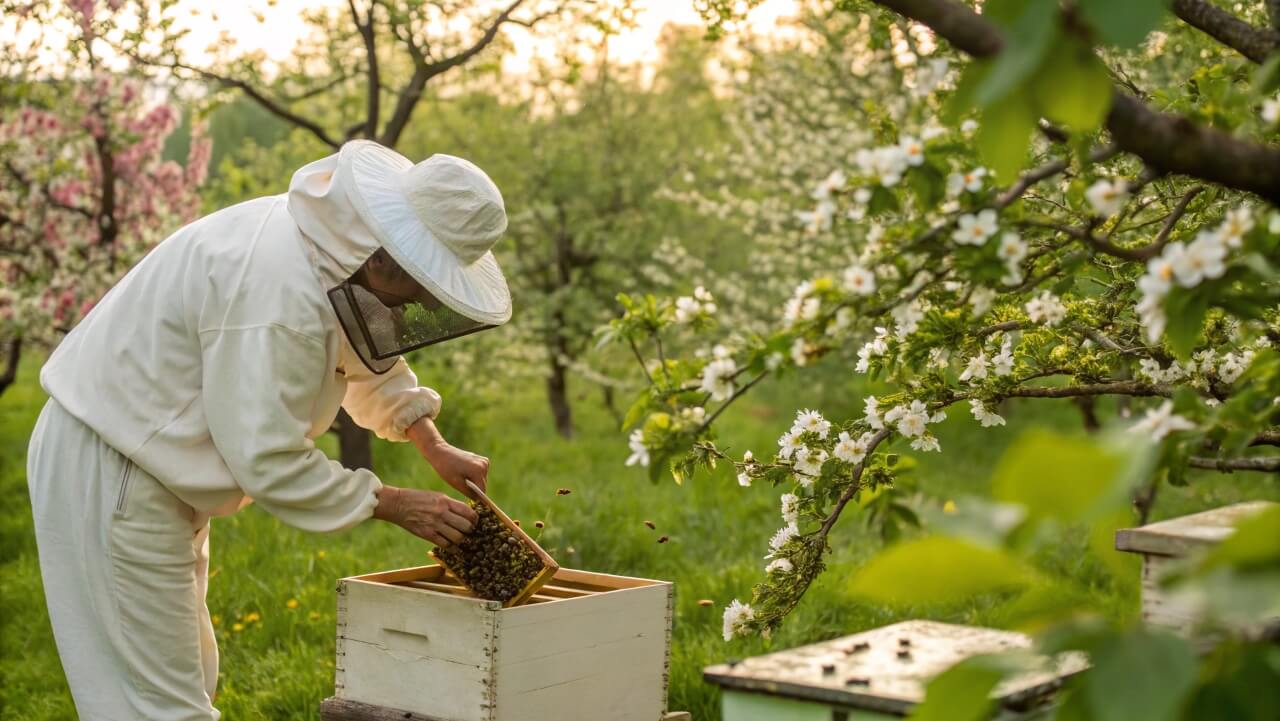How Tending to Bees Reduces Stress

There’s something magical about watching bees work. They zip from flower to flower with laser focus, never rushed, never distracted. Just doing their job - pollinating, collecting, building. It’s oddly soothing, isn’t it? Maybe that’s why so many people say beekeeping helps them feel calmer, more present, and even… happier.
Turns out, they’re onto something.
Whether you’re a full-blown backyard beekeeper or just bee-curious, tending to these tiny creatures offers a surprising path to mental clarity. It's not just about honey - it's about slowing down, tuning in, and rediscovering a quieter way of being.
Let’s explore how bees can teach us to be more mindful and less stressed, and how that might be exactly what your nervous system needs right now.
Busy Bees, Still Minds
Mindfulness is about paying attention to the present moment, on purpose, without judgment. Sounds simple. But in real life? With 47 tabs open in your brain and an inbox full of "just circling back" emails? Not so much.
That’s where bees come in.
Tending to a hive forces you to focus. You have to move slowly, breathe steadily, stay calm. Bees don’t respond well to panic or haste, and frankly, neither do we.
Beekeepers describe a shift when they open a hive. The outside world fades. Time slows. It’s just you, the bees, the hum of wings, the rhythm of the work. That kind of immersion is pure mindfulness in motion. And unlike a meditation app, the feedback is immediate - stay present, stay calm, or get stung. Talk about incentive.
The Healing Power of Nurture
There’s something deeply therapeutic about taking care of something else, especially something small, fragile, and dependent on your care. It activates what psychologists call tend-and-befriend responses. This is your nervous system’s softer side - rather than fight or flight, it shifts into connection and calm.
When you’re tending to bees:
- You become attuned to rhythms and seasons.
- You notice small changes and react with patience.
- You take responsibility for something beyond yourself.
These kinds of nurturing tasks have been shown to reduce cortisol (your main stress hormone), lower blood pressure, and increase feelings of purpose and meaning - core ingredients for mental wellbeing.
Even if you're not a beekeeper, similar effects can come from planting flowers that attract pollinators, building bee hotels, or simply observing bees at work. The focus and care it invites, without pressure for perfection, is what matters most.
Why Slowness Is Medicine

So much of modern life pushes us toward urgency and efficiency. We're constantly multitasking, scrolling, reacting. And yet, our minds crave slowness.
Beekeeping is the antidote. You can’t rush a hive inspection. You have to listen. Watch. Wait. It's methodical. Repetitive. Quiet. And this slow pace is powerful, it calms the nervous system, grounds the mind, and builds emotional resilience over time.
Much like a session with a therapist, beekeeping asks you to be present and honest - with yourself and your environment. It’s not always comfortable. But it’s real. And that’s where healing begins.
You Don’t Have to Do It Alone
Here’s the gentle truth - you don’t need to keep bees to feel better. But you do need space in your life for reflection, connection, and a bit of slowness.
Whether that comes through time in nature, a mindful hobby, or a good conversation with someone who listens, the goal is the same - to feel more grounded in yourself.
If your stress feels heavy, your thoughts feel tangled, or your mind just won't slow down, a psychologist or therapist can help you get back in touch with your internal calm. Therapy sessions offer the same kind of quiet, focused attention you might find in the garden - but with tools and insights tailored to your needs.
It’s not about fixing you. It’s about helping you hear yourself more clearly.
Let the Bees Teach You
Bees don’t rush. They don’t try to do it all at once. They just show up, do their work, and trust the process. There's a kind of wisdom in that - a reminder that you don’t need to move faster. You just need to come back to what matters.
So whether you’re suited up next to a hive or sipping tea while watching bees from the porch, know this - slowness is healing. Presence is powerful. And you’re allowed to choose both.